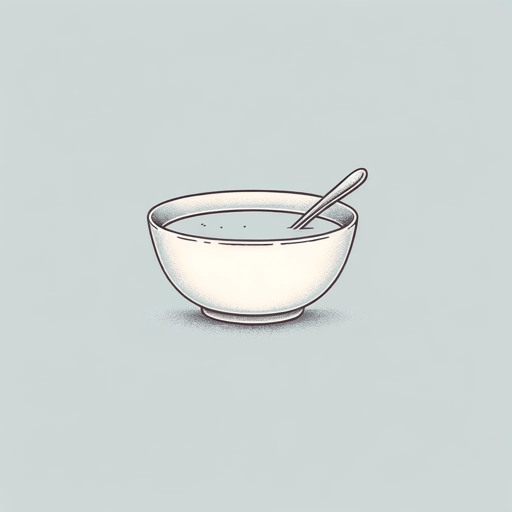57 pages • 1 hour read
Primo LeviIf This is a Man
Nonfiction | Autobiography / Memoir | Adult | Published in 1947A modern alternative to SparkNotes and CliffsNotes, SuperSummary offers high-quality Study Guides with detailed chapter summaries and analysis of major themes, characters, and more.
Summary and Study Guide
Overview
If This Is a Man is a Holocaust memoir written by Primo Levi, first published by the small publishing house Francesco de Silva in 1947. The text was out of print by 1952. In June 1958, however, the publisher Enaudi, which had previously rejected the manuscript, republished it with slight revisions, and translations began to appear. Re-publication secured Levi’s status as a canonical writer of the Holocaust.
This study guide refers to the English translation of Primo Levi’s Se questo e un uomo? (If This Is a Man) by Stuart Woolf, published in 1959 by Orion Press.
Content Warning: The source material features genocide that includes but is not limited to antisemitism, torture, starvation, execution, and other forms of extreme violence.
Summary
If This Is a Man is a first-person account of Levi’s experiences as a Jew during the Holocaust, including his detainment, transport, and year-long struggle in a concentration camp.
The memoir begins when 24-year-old Levi is captured by the Fascist Militia in December 1943. He is taken to an Italian detention camp in January 1944, and in February 1944, he and other Jews endure a five-day transport to occupied Poland. When they arrive, the prisoners are “selected” for either the gas chambers or the work camps on the loading platform. Levi is quickly moved into an all-male group selected for work, and they are loaded on a truck and taken to Auschwitz-I camp.
The prisoners are made to strip, and all their possessions are taken from them. They are loaned poorly fitting clothes and shoes and are shaved. Their ID number is tattooed on their wrist and must be shown to receive small rations of bread and soup.
Levi begins to learn the complicated and contradictory rules of the Buna work camp, named for the synthetic rubber the Germans are attempting to produce by way of the prisoners’ labor. The camp, as both a place and a system, is colloquially known as the Lager. Levi is forced to do manual labor from sunup to sundown in all weather conditions, and he quickly develops sores on his feet that never heal. He is extremely hungry all the time. The prisoners are desperate to barter for extra food rations with anything they can find, and Levi learns how to protect the few pieces of clothing and the spoon that he uses from being taken, even though technically, all is considered property of the SS, including the prisoners themselves.
Levi hurts his foot while carrying a heavy load one day, and he gains entrance into the infirmary, (Krankenbau), known as Ka-Be. After several weeks he is released, though his wound is not entirely healed. Upon discharge, each prisoner is given “new” clothing and shoes, their spoon is taken, and they are reassigned to a new block and bunkmate. This makes release from Ka-Be stressful: different shoes must be broken in, the culture of a new block and personalities of block leaders and bunkmates must be learned, and a spoon must be secured through food rations. All the while, the nurses in Ka-Be make huge profits on the confiscated spoons.
Many prisoners die of exhaustion. The prisoners focus on the moment, rarely allowing themselves to think fully about the terrible future. Most of the prisoners are ultimately “drowned,” so wasted away that they do not care about surviving.
Levi, trained as a chemist, is informed by his Kapo that he has been selected to take a chemistry exam and may be chosen to work in the Buna lab. During the exam Levi is exhilarated, feeling his mind is at work again.
Allied Forces land in Normandy in June 1944, and the Germans become increasingly vulnerable. The Buna factory is bombed, and the prisoners must clean up the resulting mess. In the chaos of the summer, Lorenzo, a civilian working in the Buna factory, commits to smuggling food to Levi every day. Levi attributes his survival to Lorenzo. Selections of prisoners to be killed are made, and Levi only survives as the result of a mistake.
In the fall, Levi is chosen to work in the lab. He calculates that he might survive the winter, during which seven out of 10 prisoners die, because he will no longer have to do manual labor and the lab is heated. He continues not to hope for anything, however, and lives day to day.
Levi and his best friend, Alberto, learn how to navigate the Lager’s marketplace. One day, as they carry extra rations back to their block, they witness the execution of a prisoner who, with his Kommando, blew up the crematorium. He declares his final words, “Comrades, I am the last one!” to the prisoners with determination. Levi and Alberto return to their block with their extra rations in shame, in awe of this man’s courage.
The Russians get closer, and the Germans abandon the camp in January 1945. Levi is sick and in Ka-Be. The 10 days before the Russians arrive are spent in the infirmary with sick patients with a range of contagious diseases and they are unable to control their bowels. The floor is covered in frozen diarrhea, as there is no heat and no running water. Levi meets two Frenchmen in the infirmary who are new to the Lager. The three of them try their best to scavenge for frozen potatoes to feed themselves and the sick, cleaning up after the dying as best they can despite having no water except for the snow.
After 10 days, as they are carrying the corpse of one of their roommates outside, the Russians arrive.
Related Titles
By Primo Levi



